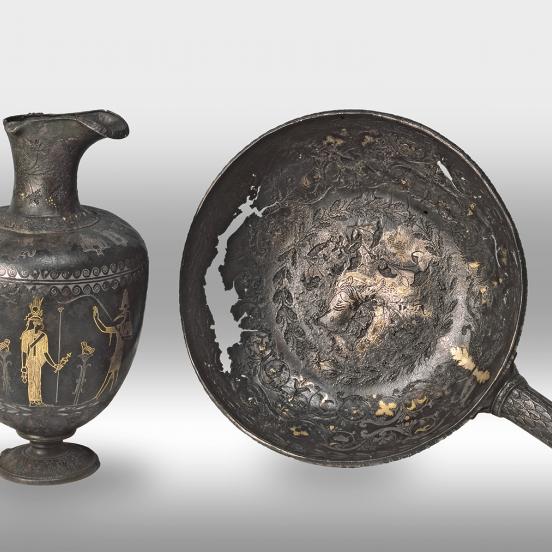“Corinthian bronze”jug and bowl with handle, Egyed
Reverence for the Egyptian Isis and Osiris fused with elements of Greek thinking developed into a new mystery religion. The new cult of Isis had already spread in Italia by the 2nd century B.C. Then as a result of the Roman conquests it took root in the provinces, thus in Pannonia in the 1st century A.D. Two exceptional metal vessels verify the religious tradition of Egyptian origin: the handwash set consisting of a jug and a bowl with handle found in Egyed, Hungary may have been used as accessories to religious rituals in the shrine erected in honour of Graeco-Egyptian gods in nearby Mursella (Mórichida-Kisárpás) or Scarbantia (Sopron). The material and the mode of decoration make these two items special. They were probably made in Alexandria, Egypt, and today they are the only known vessels crafted from the metal mentioned in ancient written sources as “Corinthian bronze” (aes Corinthium): the vessels made of a copper-based alloy according to a secret recipe were black-patinated and decorated with finely executed gold and silver inlays. Egyptian gods are depicted on the jug, while a Nilotic scene can be seen on the inside of the bowl.

